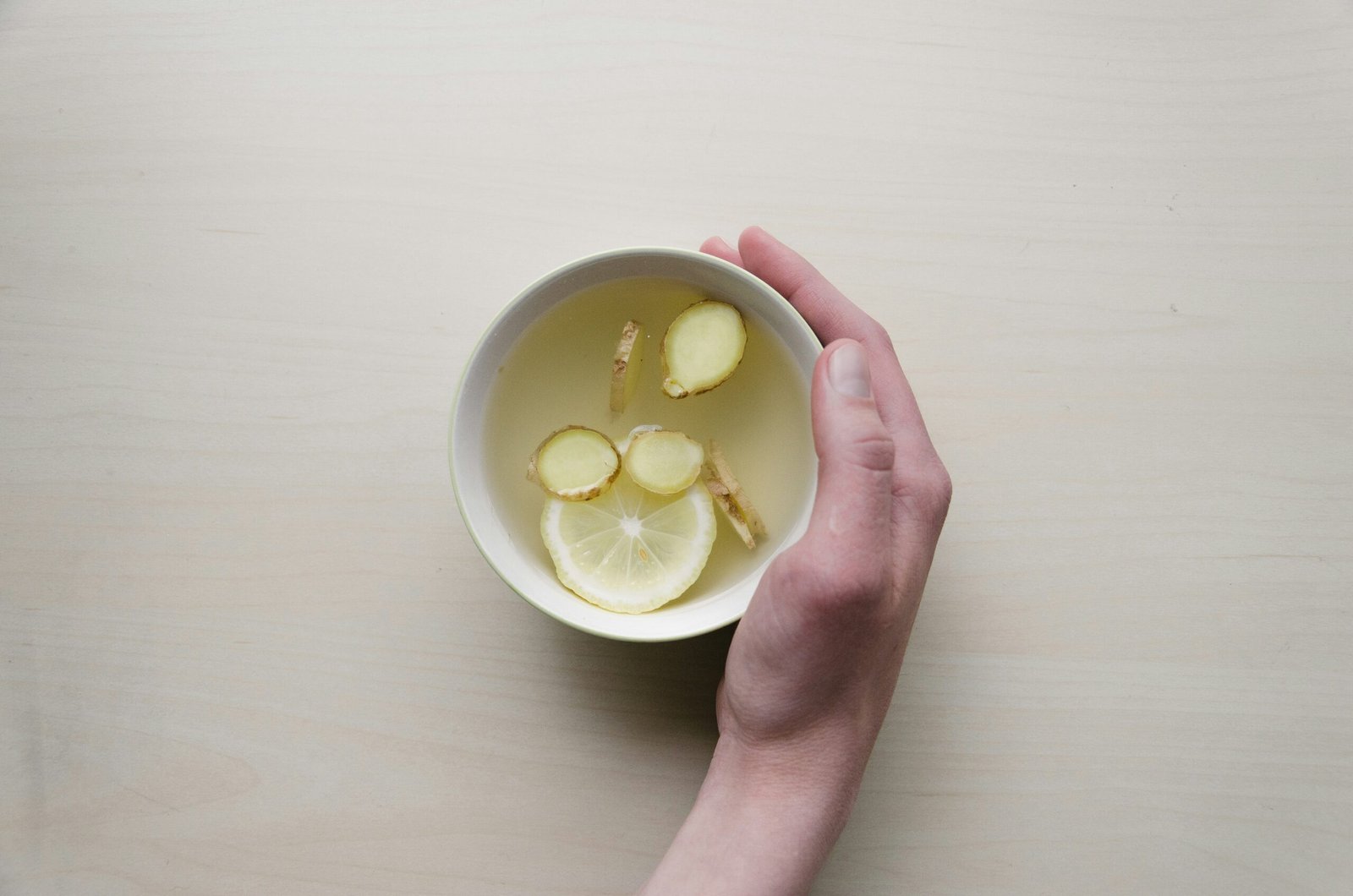Are you curious about the relationship between dietary choices and cholesterol levels in older adults? This article explores how the food we consume can directly affect our cholesterol levels as we age. Understanding the impact of our dietary decisions is crucial for maintaining heart health and overall well-being as we enter our golden years. By making informed choices about what we eat, we can potentially reduce cholesterol levels and promote a healthier lifestyle. Let’s dive into how these choices can impact our cholesterol levels and make a positive difference in our lives.

Understanding Cholesterol and its Role in Health
What is cholesterol?
Cholesterol is a waxy, fat-like substance found in your blood. It is produced by the liver and also comes from the food you eat. While cholesterol is often associated with negative connotations, it is actually essential for various bodily functions including the production of hormones, vitamin D, and bile acids.
The two types of cholesterol
There are two main types of cholesterol: low-density lipoprotein (LDL) and high-density lipoprotein (HDL). LDL cholesterol, commonly known as “bad cholesterol,” can build up in the arteries and increase the risk of cardiovascular diseases. HDL cholesterol, often referred to as “good cholesterol,” helps remove LDL cholesterol from the bloodstream, thus reducing the risk of heart disease.
The role of cholesterol in the body
Cholesterol plays a crucial role in maintaining the integrity of cell membranes, producing hormones such as estrogen and testosterone, and aiding in the digestion of fats. It is transported throughout the body by lipoproteins, which are made up of cholesterol and proteins. While cholesterol is produced naturally by the body, it can also be obtained from dietary sources.
Implications of high cholesterol
Elevated levels of LDL cholesterol can lead to the formation of plaque in the arteries, a condition called atherosclerosis. Over time, this buildup can narrow the arteries and restrict blood flow, potentially leading to serious health issues such as heart attacks and strokes. It is important to manage cholesterol levels, particularly as you age, to maintain overall health and well-being.
Factors Affecting Cholesterol Levels in Older Adults
Age-related changes in cholesterol metabolism
As you age, the way your body metabolizes cholesterol may change. Older adults may experience an increase in LDL cholesterol and a decrease in HDL cholesterol levels. These changes, coupled with a slower metabolism and decreased physical activity, can contribute to higher cholesterol levels.
Genetic predisposition
Genetics can play a significant role in determining your cholesterol levels. Some individuals may inherit genes that cause their bodies to produce more cholesterol or have difficulty effectively metabolizing cholesterol. If you have a family history of high cholesterol or cardiovascular disease, it is important to be mindful of your dietary choices.
Obesity and weight management
Excess weight, particularly abdominal fat, can contribute to elevated cholesterol levels. Obesity is often associated with lower HDL cholesterol and higher LDL cholesterol levels. Engaging in regular physical activity and adopting a balanced, nutrient-dense diet can help manage weight and promote healthier cholesterol levels.
Physical activity and exercise
Regular physical activity and exercise can have a positive impact on cholesterol levels. Exercise can increase HDL cholesterol levels, which helps remove LDL cholesterol from the bloodstream. It can also improve overall cardiovascular health, enhance circulation, and aid in weight management. Engaging in activities you enjoy, such as walking, swimming, or cycling, can help promote healthier cholesterol levels.
Effects of Dietary Fats on Cholesterol Levels
Different types of dietary fats
Dietary fats can be classified into different categories, including saturated fats, trans fats, monounsaturated fats, and polyunsaturated fats. It is important to understand the impact each type of dietary fat has on cholesterol levels.
Saturated fats and their impact on cholesterol
Saturated fats, mostly found in animal products such as red meat, full-fat dairy products, and tropical oils, can raise LDL cholesterol levels. It is recommended to limit the consumption of saturated fats to promote healthier cholesterol levels.
Trans fats and their impact on cholesterol
Trans fats, commonly found in processed foods, fried foods, and baked goods, are known to increase LDL cholesterol levels while reducing HDL cholesterol levels. It is advisable to avoid or minimize the intake of trans fats for better cholesterol management.
Monounsaturated and polyunsaturated fats and their impact on cholesterol
Monounsaturated fats, found in foods like olive oil, avocados, and nuts, can help lower LDL cholesterol levels while maintaining or increasing HDL cholesterol levels. Similarly, polyunsaturated fats, found in fatty fish, walnuts, and sunflower seeds, are beneficial for cholesterol management. These fats contain omega-3 and omega-6 fatty acids, which play a role in reducing LDL cholesterol and triglyceride levels.
Fiber: A Key Component for Cholesterol Management
The role of dietary fiber in cholesterol reduction
Dietary fiber, particularly soluble fiber, can help reduce LDL cholesterol levels. Soluble fiber forms a gel-like substance in the digestive system, which binds to cholesterol and prevents its absorption into the bloodstream. This, in turn, helps to lower overall cholesterol levels.
Types of fiber and their effectiveness
There are two main types of dietary fiber: soluble fiber and insoluble fiber. While both types are important for digestive health, soluble fiber has a greater impact on cholesterol reduction. Foods rich in soluble fiber include oats, barley, legumes, fruits, and vegetables.
Foods rich in soluble fiber
Incorporating more soluble fiber-rich foods into your diet can have a positive effect on cholesterol levels. Oats and barley, for example, are excellent sources of soluble fiber and can be consumed as hot cereals or added to baked goods. Legumes such as beans, lentils, and chickpeas are also high in soluble fiber and can be added to soups, stews, or salads to increase fiber intake.
Incorporating more fiber into the diet
To increase your fiber intake, aim to include more fruits and vegetables in your meals and choose whole grain products over refined grains. Adding beans or lentils to salads or soups, snacking on nuts or seeds, and including fiber-rich snacks like apples or carrots can also help boost your fiber consumption.

Antioxidants and their Potential Role in Cholesterol Health
What are antioxidants?
Antioxidants are substances that help protect cells from damage caused by harmful molecules known as free radicals. Free radicals can contribute to the development of chronic diseases, including cardiovascular disease. Antioxidants neutralize these free radicals, reducing their potential harm.
Examples of antioxidant-rich foods
Foods rich in antioxidants include fruits, vegetables, nuts, seeds, and whole grains. Berries, leafy greens, citrus fruits, and dark chocolate are just a few examples of antioxidant-rich foods that can be beneficial for cholesterol health.
Potential benefits of antioxidants for cholesterol levels
Antioxidants may help reduce LDL cholesterol oxidation, which is believed to be a key factor in the development of atherosclerosis. By minimizing LDL cholesterol oxidation, antioxidants can potentially lower the risk of cardiovascular diseases associated with high cholesterol levels.
Recommended daily intake of antioxidants
While there is no specific recommended daily intake for antioxidants, it is generally advised to consume a variety of antioxidant-rich foods as part of a well-balanced diet. Including a rainbow of fruits and vegetables in your meals, incorporating nuts and seeds as snacks, and enjoying occasional indulgences like a piece of dark chocolate can help ensure a good intake of antioxidants.
The Impact of Sodium and Salt Intake on Cholesterol
How sodium affects cholesterol levels
Excessive sodium intake can lead to fluid retention and increased blood pressure, potentially impacting cholesterol levels. High blood pressure, also known as hypertension, is often associated with elevated LDL cholesterol and reduced HDL cholesterol levels.
The link between sodium and hypertension
Sodium can cause the body to retain water, resulting in higher blood volume and increased pressure on blood vessel walls. This can lead to hypertension, which can contribute to the development of cardiovascular diseases. Managing sodium intake is crucial for maintaining healthy cholesterol levels and overall heart health.
Reducing sodium intake for better cholesterol management
To reduce sodium intake, it is important to limit the consumption of processed and packaged foods, as they are often high in sodium. Opting for fresh, whole foods and cooking meals from scratch allows for better control over sodium content. Additionally, using herbs and spices to flavor dishes instead of relying on salt can help reduce sodium intake while enhancing the taste of food.
Reading nutrition labels for hidden sodium
When grocery shopping, reading nutrition labels can help identify hidden sources of sodium. Pay attention to the sodium content per serving size and consider the sodium in condiments and dressings that may be added to meals. Choosing low-sodium or sodium-free alternatives when available can help reduce overall sodium intake.

Alcohol Consumption and its Effect on Cholesterol
Moderate alcohol intake and its potential benefits
Moderate alcohol consumption, particularly red wine, has been associated with potential benefits for heart health. Some studies suggest that moderate alcohol intake may increase HDL cholesterol levels, which can help protect against cardiovascular disease. However, it is important to understand what constitutes moderate alcohol consumption and consider individual health conditions.
Excessive alcohol consumption and its negative impact
Excessive alcohol consumption can have detrimental effects on cholesterol levels and overall health. Heavy drinking can raise triglyceride levels, a type of fat in the blood that is closely linked to cardiovascular disease. It can also contribute to weight gain and increase the risk of liver disease.
Alcohol and triglyceride levels
While moderate alcohol consumption may have some potential benefits for cholesterol levels, excessive alcohol intake can result in elevated triglyceride levels. Triglycerides are a type of fat that, when elevated, can increase the risk of arterial plaque formation and cardiovascular diseases.
Choosing healthier drink options
If you choose to consume alcohol, it is important to do so in moderation. Opt for healthier drink options such as red wine, which contains antioxidants, over sugary mixed drinks or high-calorie alcoholic beverages. It is also advisable to stay well-hydrated and limit alcohol consumption to the recommended guidelines set for moderate drinking.
Foods that Can Help Lower Cholesterol
Oats and barley
Oats and barley are excellent sources of soluble fiber, which can help reduce LDL cholesterol levels. These grains can be enjoyed as hot cereals, added to baked goods, or incorporated into recipes such as oatmeal cookies and barley salads.
Nuts and seeds
Nuts and seeds, including almonds, walnuts, flaxseeds, and chia seeds, are rich in healthy fats and fiber. These nutrient-dense foods can help lower LDL cholesterol levels. They can be eaten as a snack, added to salads or stir-fries, or used as toppings for yogurt or oatmeal.
Legumes and beans
legumes and beans, such as lentils, chickpeas, and black beans, are high in soluble fiber and protein. They can be used to make soups, stews, or vegetarian dishes, providing a heart-healthy alternative to animal-based protein sources.
Fatty fish high in omega-3 fatty acids
Fatty fish like salmon, mackerel, and sardines are rich in omega-3 fatty acids. These healthy fats have been shown to reduce triglyceride levels and have other cardiovascular benefits. Aim to incorporate fatty fish into your diet at least twice a week for optimal cholesterol management.
Dietary Supplements for Cholesterol Management
Plant sterols and stanols
Plant sterols and stanols are naturally occurring compounds found in plants that have been shown to help lower LDL cholesterol levels. They work by blocking the absorption of cholesterol in the digestive system. Plant sterols and stanols are commonly available as supplements or added to foods like margarine or orange juice.
Omega-3 fatty acid supplements
If you struggle to consume enough fatty fish, omega-3 fatty acid supplements can be a convenient alternative. These supplements, typically derived from fish oil or algae, provide the essential omega-3 fatty acids that can help lower triglyceride levels and promote heart health.
Red yeast rice and its potential effects
Red yeast rice is a traditional Chinese fermented rice product that contains substances known as monacolins. One particular monacolin, called monacolin K, has been shown to have cholesterol-lowering effects. However, it’s important to note that red yeast rice supplements vary in their monacolin content and should be used under the guidance of a healthcare professional.
Green tea extract and its impact on cholesterol
Green tea extract contains compounds called catechins, which have antioxidant properties and potential cholesterol-lowering effects. While further research is needed to fully understand the impact of green tea extract on cholesterol levels, it may be a beneficial addition to a heart-healthy diet.
Seeking Professional Guidance for Dietary Changes
Consulting a registered dietitian or nutritionist
If you are looking to make significant changes to your diet to manage cholesterol levels, it is recommended to seek guidance from a registered dietitian or nutritionist. These professionals can provide personalized advice based on your specific health needs and help you develop a dietary plan that is both effective and sustainable.
Developing a personalized dietary plan
A registered dietitian or nutritionist can assess your current health status, evaluate your dietary preferences, and develop a personalized dietary plan to manage cholesterol levels. This might include incorporating specific foods, optimizing nutrient intake, and ensuring a balanced and varied diet.
Monitoring cholesterol levels regularly
Regular monitoring of cholesterol levels is essential to evaluate the effectiveness of dietary changes and ensure ongoing cholesterol management. Your healthcare provider can advise on how often you should have your cholesterol levels checked and adjust your dietary plan as needed.
Ensuring medication and dietary recommendations align
If you are taking cholesterol-lowering medication, it is important to ensure that your dietary changes align with your medication regimen. Certain foods or supplements may interact with medications, so it is crucial to discuss any dietary modifications with your healthcare provider to ensure they are safe and effective.
In conclusion, dietary choices can have a significant impact on cholesterol levels in older adults. Understanding the different types of cholesterol, the role of cholesterol in the body, and the implications of high cholesterol is key to better managing cholesterol levels. Factors such as age-related changes, genetic predisposition, obesity, physical activity, and dietary fat intake can all influence cholesterol levels. Incorporating fiber-rich foods, antioxidant-rich foods, and heart-healthy fats into the diet, as well as paying attention to sodium and alcohol intake, can help promote healthier cholesterol levels. Additionally, discussing dietary changes with healthcare professionals and considering dietary supplements under their guidance can further support cholesterol management. By making informed and conscious dietary choices, it is possible to maintain and improve cholesterol levels to support overall health and well-being in older adults.
Losing weight and keeping it off can be a challenge. I’m here to show you good-tasting foods and drinks that help you lose weight, and are enjoyable to eat.




